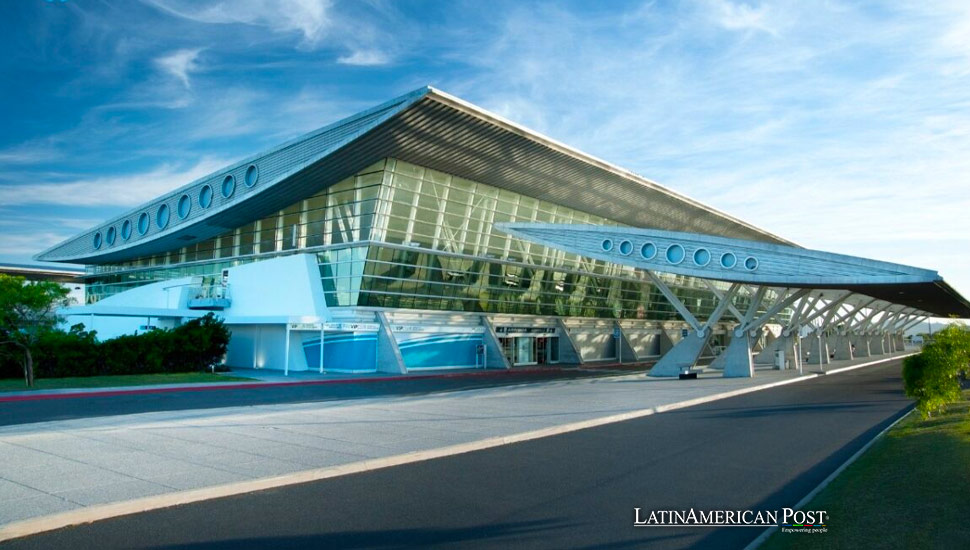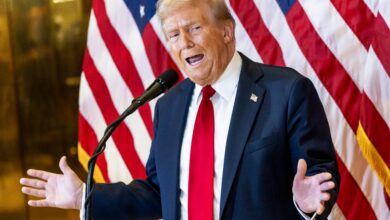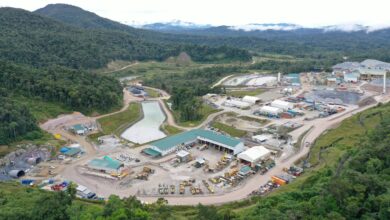China’s Loans to Nicaragua Boost Infrastructure and Strategic Ties

Nicaragua has secured $567.17 million in loans from China over the past six months, financing key infrastructure projects, including the modernization of the Punta Huete International Airport and the construction of a significant photovoltaic plant.
In a significant move reflecting deepening ties between China and Nicaragua, the Central American has received $567.17 million in loans from China within the last six months to fund essential infrastructure projects. This influx of capital is part of a broader strategy to strengthen Nicaragua’s economic and strategic partnership with China. This relationship has grown markedly since the resumption of diplomatic ties in December 2021.
Among the funded projects, the most substantial is a $399.6 million loan to reconstruct, expand, and modernize the Punta Huete International Airport. Located 58 kilometers northeast of Managua in San Francisco Libre, this airport was built in the 1980s with support from the Soviet Union and Cuba during the first Sandinista government. The modernization project is expected to be completed in four years, transforming the facility into a modern international hub.
In addition to the airport, China has also financed several other critical projects:
Photovoltaic Plant: A $72.7 million loan will fund the design and construction of a photovoltaic plant in San Isidro, Matagalpa. The plant will power the water systems of the state-run Empresa Nicaragüense de Acueductos y Alcantarillados Sanitarios (Enacal).
Gas Storage: Another $26.9 million loan will be used to construct three gas storage spheres, enhancing the country’s energy infrastructure.
Second Photovoltaic Plant: A $67.97 million loan was approved to build another photovoltaic plant in northern Nicaragua, with a generation capacity of 67.35 megawatts.
These projects highlight the strategic importance of renewable energy and infrastructure development in Nicaragua’s growth plans, which are significantly supported by Chinese investment.
Strategic Partnership and Historical Context
The strengthening of Nicaragua-China relations was solidified with the elevation of their diplomatic ties to a “strategic partnership” in December 2023. This shift was marked by a phone conversation between Chinese President Xi Jinping and Nicaraguan President Daniel Ortega, underscoring a mutual commitment to deepen bilateral cooperation.
The roots of Nicaragua’s relationship with China date back to December 1985, during the first Sandinista government. However, diplomatic ties were severed in 1990 under President Violeta Barrios de Chamorro, who established relations with Taiwan. It was in December 2021 that Nicaragua re-established diplomatic relations with China, cutting ties with Taiwan and becoming the 181st country to recognize the People’s Republic of China.
Economic and Trade Cooperation
The renewed diplomatic ties have facilitated significant economic cooperation. In August 2023, China and Nicaragua signed a comprehensive Free Trade Agreement (FTA), which came into effect on January 1, 2024. This agreement aims to boost bilateral trade by eliminating tariffs on 95% of goods, covering trade in goods, cross-border services, and investment. The FTA is expected to enhance Nicaragua’s exports to China, which include beef, coffee, and rum while increasing Chinese investments in various sectors such as manufacturing, construction, and renewable energy.
The relationship between China and Nicaragua is not only economic but also strategic. China’s investments are part of a broader effort to expand its influence in Central America, historically within U.S. influence. These investments are crucial for economic development and infrastructure improvement in Nicaragua, providing a much-needed financial boost.
Challenges and Opportunities
While China’s loans and investments present significant opportunities for Nicaragua, they also present challenges. The rapid influx of Chinese capital must be managed effectively to avoid debt dependency and ensure that projects are completed efficiently and transparently.
Moreover, the growing Chinese presence in Nicaragua and other Latin American countries has geopolitical implications, particularly concerning U.S. interests. The U.S. has historically been the dominant external influence in Central America, and China’s expanding footprint represents a strategic shift that could alter regional dynamics.
The recent loans from China to Nicaragua mark a pivotal moment in the two countries’ relationship. They reflect a deepening strategic partnership that promises substantial economic benefits to Nicaragua. These investments are set to transform the country’s infrastructure and energy sectors, laying the groundwork for long-term growth and development.
Also read: Nicaragua Expands Trade Horizons as It Officially Starts Free-Trade Agreement with China
As Nicaragua continues to strengthen its ties with China, it will be crucial to balance these new opportunities with sustainable development practices and strategic planning to maximize the benefits for its people and economy. The future of Nicaragua-China relations looks promising, with both nations poised to benefit from their growing cooperation.




